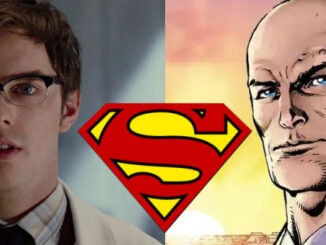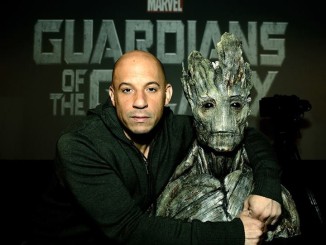
Superman is one of the most iconic characters to come out American literature. He is the most famous comic book character in the medium’s history. It is safe to say that without him, there would not be superheroes in comics, or maybe even comic books today at all.
Being such an iconic character means he has been adapted in a great number of other media in a great number of ways. All different. If you were to ask 20 people what their favorite portrayal of Superman was, you’d likely get 20 different answers. From the barrel-chested George Reeves version, to the iconic Christopher Reeve version. From the “No Capes” ethos of Smallville to the divisive Batman v. Superman: Dawn of Justice, there is enough Superman to go around that everyone has a favorite.
This is the problem James Gunn faced as he rebooted the franchise with Superman. To top that off, not only did Gunn have to restart the world of Superman in a way that all the fans of the character would like, but also, he had to restart Warner’s whole DC Comics cinematic universe.
So, how did he do? Not very well in my opinion.
The story deals with a relatively new Superman (David Corenswet), only three years into his career, dealing with a bunch of problems. His stopping a war between fictional countries Boravia and Jarhanpur has angered a lot of people. Lex Luthor (Nicolas Hoult) was way ahead of the curve in that regard. He is using the world’s newfound distrust of Superman to have the world sanction his ultimate end goal–killing Superman. He fans the flames enough that he gets the go ahead. Now Superman not only has to fight to get back in the world’s good graces but also just stay alive.
Gunn seems to be trying to make his Superman everything to everyone. This might be a nigh impossible task to begin with, but it is even harder the way Gunn does it. Instead of writing a definitive version of the character that could stand on its own, he uses a “Take one from column A, one from column B” approach from Superman’s cinematic and comic book past to create his narrative.
Some scenes have the look and feel of the Donner films. Some have the feel of Snyder’s take on the character. Some elements feel like they were ripped directly from the comic books. It’s like Gunn is saying “You liked these parts of the other movies, here they are, please like mine.”
But this causes the film to take on a patchwork feel and also causes a whiplash of tone. Yes, Krypto is great, and reminds the comic fans in the audience of the goofiness of the Silver Age of comic books. However, when Lex Luthor kills a minor character in cold blood later in the film, it is such a shock that it seems like you are watching a different movie. Some might think that Gunn did well weaving these varied elements into a seamless whole. I didn’t. I found it jarring, and it took me out of the movie in such a way that I began noticing other flaws in the film.

It doesn’t help that Gunn drops us into the film like we were a baby learning to swim by being tossed in a pool. Conventional wisdom says that by this point, we don’t need to rehash a hero’s origin and backstory, especially one as well told as Superman’s, for every film. That might be true, but we need more than what Gunn gives us.
For example, let’s take the romance between Lois (Rachel Brosnahan) and Clark. It is one of the best, most realistic portrayals of the pairing on film. However, we are never told how this version of the couple got together. That would be nice to know, because the troubles the relationship experiences (and for those of you crying SPOILER?, if you didn’t think the relationship was going to go through a rough patch after seeing the interview scene in the trailer then you have never been in a relationship) would have had more impact if we knew how their love developed.
But we couldn’t do that. Because the film had to be 2 hours long and Gunn had 20 hours of stuff to fit in it. The means we get a lot of underdeveloped characters, shortcuts in place of solid plot advancement, and a whole bunch of telling and not showing. Luthor’s motivation is given in a speech by the character during the third act. Yes, we are shown that he is despicably evil, but we don’t get a motivation behind it until the film is almost over. It doesn’t help that Gunn’s patchwork approach to the film has Luthor being the ruthless businessman from the post-Crisis on Infinite Earths comic books, the insane scientific genius from the pre-Crisis comics and the megalomaniac buffoon from Richard Donner’s Superman and Bryan Singer’s Superman Returns all at once. One of those characteristics don’t fit well with the others. Once you see the film, you’ll know which one it is.
But at least Lex gets a short cut in lieu of characterization. Jimmy Olsen (Skyler Gisondo) is given a character trait of being inexplicably attractive to hot women and little else. The Justice Gang are pretty much cyphers. Guy Gardner comes off best due to the power of Nathan Fillion’s performance of the character. But Hawkgirl (Isabela Merced) doesn’t get much of a personality to speak of and Mr. Terrific (Edi Gathegi) goes from an analytical, stoic and reserved character to a wisecracking quipster throughout the film without a hint of a reason why. Ron Troupe, a rather important supporting character in the Superman comics, appears in the film, but you’d never know if it wasn’t for the scene where the Daily Planet staff are evacuating the building.
And Gunn also takes shortcuts with the plot. Luthor’s plan to discredit Superman works unbelievably well and incredibly quick. The people of Metropolis literally go from cheering Superman for saving their lives to throwing cans at his head in a matter of seconds. No dissention in the ranks, no individuals willing to defend Superman. Each and every one of them immediately go from love to hate so fast it causes whiplash. Why? Because they have to in order to move the plot along.
What makes this all disappointing is that there are a lot of good qualities in the film. The acting is pretty much perfect. Corenswet captures the earnest and forthright aspect of Superman very well and Brosnahan creates one of the most vibrant, human and realistic Lois Lanes in any adaptation. And, yes, we once again get an underwritten Lex Luthor, but the only reason the character works at all is because of Nicolas Hoult’s performance. Hoult’s Luthor is a petty hate machine, arrogant, vicious and with no moral center. And that is all due to Hoult and what he brings to the poorly developed character.
There is also plenty of cameos and easter eggs to amuse fans. Gunn’s trademark humor is used to great effect. And the action scenes are well written and well shot.
But overall, Superman is a chaotic mess that somewhat resembles a movie. It is not bad enough to completely hate, but it ranks as a disappointing misfire. Superman deserves better. One day, hopefully, he’ll get it.




